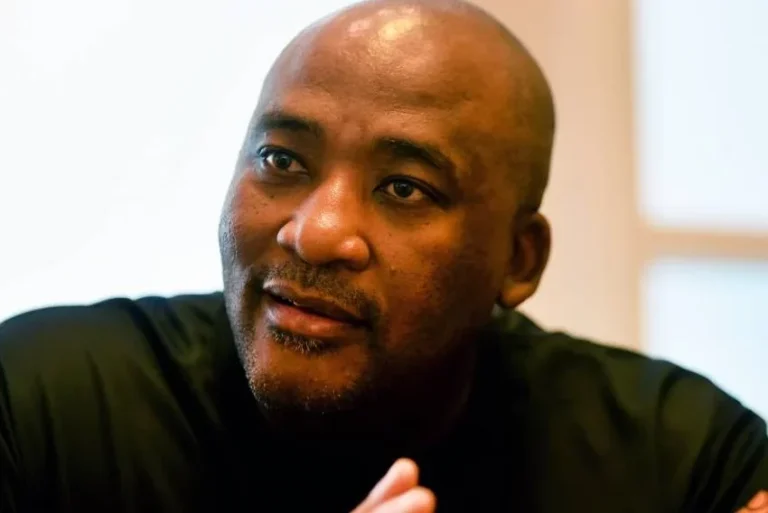South Africa’s new cabinet ministers were sworn-in on Wednesday, among them a former gangster and bank robber who becomes the country’s next arts and sport minister.
The 32 cabinet ministers and 43 deputy ministers were sworn-in by Chief Justice Raymond Zondo in Cape Town. Among the 32 were Deputy President Paul Mashatile.
The swearing-in ceremony followed Sunday’s announcement President Cyril Ramaphosa of cabinet ministers and deputy ministers who are part of a newly formed government of national unity (GNU) that is made up of 11 political parties.
In all, seven parties received ministerial posts in the cabinet, with 20 ministers coming from the African National Congress, six from the Democratic Alliance, two from the Inkatha Freedom Party and one each from the GOOD, Freedom Front Plus, Patriotic Alliance (PA) and Pan Africanist Congress of Azania.
Of interest is PA leader Gayton McKenzie, a former gangster and bank robber-turned-nightclub owner-turned politician.
He is South Africa’s new minister of sports, arts and culture.
He admitted in a radio interview to having been a fully-fledged gangster, robbing his first bank when he was a teenager.
He spent seven years in prison after he was caught, an experience that he claims made him change his ways.
He became a highly paid motivational speaker, wrote books about his life, including one titled A Hustler’s Bible.
Together with one of his prison mates Kenny Kunene, McKenzie ventured into various businesses – from mining in Zimbabwe to nightclubs in South Africa.
The nightclub business eventually collapsed and he ventured into politics by launching the PA in 2013, with Kunene as his deputy.
The PA garnered about two percent of the vote in national elections held on May 29, which failed to produce an outright winner, leading to the formation of the GNU.
The PA took advantage of South Africa’s deteriorating economic conditions and rising crime to base its election campaign on the anti-African foreign sentiment in the country.
McKenzie and his supporters promised to send back all undocumented African migrants, particularly from Lesotho, Mozambique and Zimbabwe, whom they accused of taking jobs from South Africans and causing the high crime rate.
JN/APA


